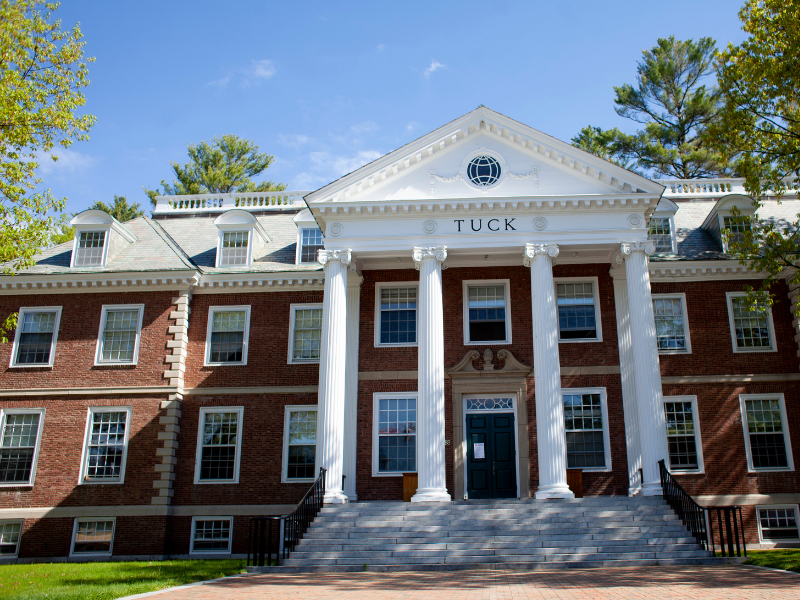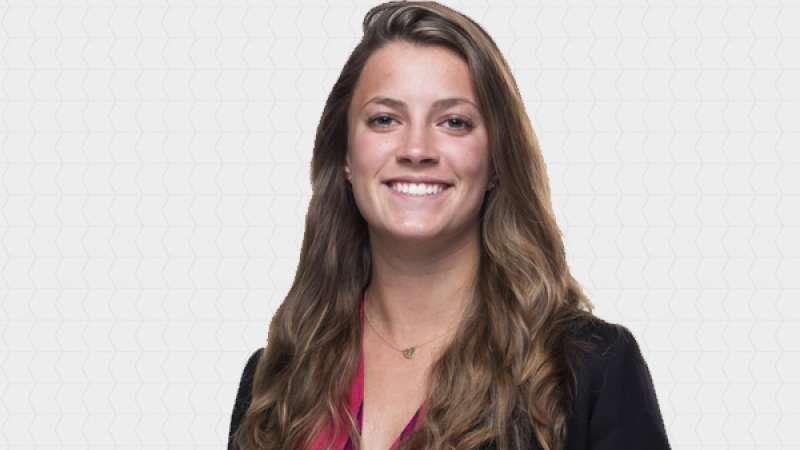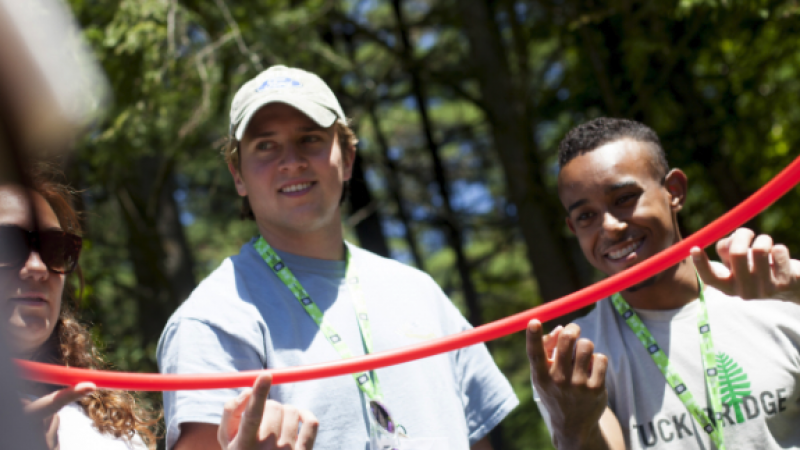
Bridge Builders
BUSINESS BRIDGE SCHOLARSHIP FUND ENDOWED FOR FIRST-GENERATION DARTMOUTH STUDENTS
A new scholarship fund endowed by Walter Freedman D’60, T’61 and Karen Harrison will help first-generation Dartmouth students transitioning to business careers.
Walter Freedman D’60, T’61 and his wife Karen Harrison have always looked for ways to maximize the effect of their philanthropy. The key, Freedman says, is to find the places where need and potential intersect. That’s what drew their attention to Business Bridge, a program of Dartmouth’s Tuck School of Business designed that helps students and new graduates at liberal arts colleges transition to careers in business.
“What we see in the Bridge program is a highly successful program that’s been in existence for more than 20 years,” says Freedman. “It’s the preeminent program of its type in the country and perhaps the world.”
Freedman and Harrison recognized, however, that many excellent candidates couldn’t afford to take advantage of the program. And while some financial aid was available to Bridge students, the program lacked an endowed scholarship fund. It was there that the couple recognized the chance to make a significant and lasting impact. “We saw an opportunity to make that program available to young Dartmouth students who otherwise would not have a prayer of going there,” he says.
The couple will endow a scholarship fund that gives preference to first-generation, low-income Dartmouth students who demonstrate leadership goals and potential. In planning the gift, they were inspired by Dartmouth’s Interim Dean of the College Kathryn Lively, herself a first-generation college graduate and a leader in Dartmouth’s efforts to attract qualified students who are among the first in their families to attend college. The college has worked diligently to welcome these students and remove barriers to their full participation in the Dartmouth experience.
Opening opportunities in the Bridge program seemed like a logical next step, Freedman says. “I think it’s aptly named because the program can be a bridge to the business world for first-generation and low-income students. And of course I’m a Dartmouth graduate and a Tuck graduate, so this is kind of a bridge for me too,” Freedman says. “Today we talk about One Dartmouth commitment and One Dartmouth community, with a goal of creating a more diverse, inclusive, and welcoming climate. So for me, it all ties together.”
After Tuck, Freedman worked in a variety of executive positions. (“He’s had many, many careers,” Harrison interjects. “You’d think he couldn't keep a job but that's not the case at all.) Through 60 years in business, Freedman has always found an opening, whether in the vanguard of the computer age with IBM or the introduction of a little-known dairy product to the American market; Freedman was an investor and chief executive of the company that brought Yoplait yogurt to this country.
Now that he and his wife are in a position to give back, they’ve applied that entrepreneurial model to their philanthropy, with a particular emphasis on education. Harrison, who worked for 25 years as an educator, has served on the boards of the Chicago Children’s Museum and Facing History and Ourselves, an organization that provides teachers with the training and resources to confront racism, violence, and anti-Semitism.
The Tuck Bridge scholarship fits the goals and philosophy of their philanthropy, and the couple identifies with students who have the talent for a top-notch education but lack the means. Harrison had to take out loans to get through The Ohio State University, at a time when tuition and room and board amounted to about $1,500 a year. The average college graduate in the United States today owes more than $37,000 in student loans.
“That’s just insane for these kids to be burdened with that kind of debt,” Harrison says. “So we want to give our money to education, and we want to give it to the kids that really benefit the most.”
It’s a good feeling, Freedman says. “We’ve been encouraged by what we’ve heard from people at Dartmouth and at Tuck, because they expect a lot of students who could not do it any other way will be able to benefit from the Bridge program.”


